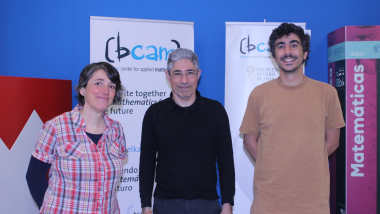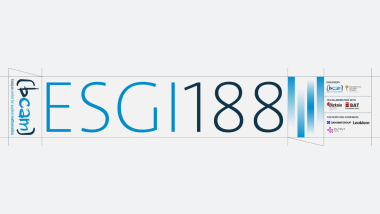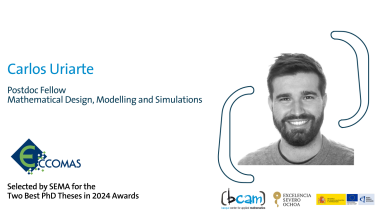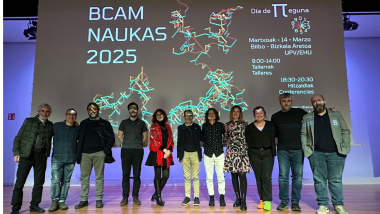BCAM participates in a two-day work meeting for the TANGO Project in Paris
- Over two days (October 17 & 18), BCAM, represented by its Scientific Director José Antonio Lozano, Novi Quadrianto (PI), Thomas Kehrenberg, and Javier Sanguino, participated, along with the rest of Tango Horizon project partners, in a two-day work meeting in Paris for a comprehensive review and discussion on the progress of the TANGO Project.
- The gathering featured several working sessions, each focused on key aspects of the project, including algorithms, ecosystem development, and case studies
Over the two days (October 17 & 18), BCAM, represented by its Scientific Director José Antonio Lozano, Novi Quadrianto (PI), Thomas Kehrenberg, and Javier Sanguino, participated, along with the rest of TANGO Horizon Project partners, in a two-day work meeting in Paris for a comprehensive review and discussion on the progress of the TANGO Project.
The gathering featured several working sessions, each focused on key aspects of the project, including algorithms, ecosystem development, and case studies.
A highlight of the meeting was the convening of the Interdisciplinary Scientific Advisory Committee, where experts shared insights and provided valuable feedback. Updates on communication strategies, dissemination efforts, and exploitation plans were also shared among the partners.
Project management and ethical considerations were central topics of discussion, as partners collaborated to ensure the project's responsible and effective progression. The day concluded with a dynamic brainstorming session, which set the stage for future steps in advancing the TANGO Project.
This two-day meeting reinforced the collaborative spirit of the project and laid the groundwork for continued success in the months ahead.
TANGO is a €7M EU-funded Horizon Europe project that aims to develop the theoretical foundations and the computational framework for synergistic human-machine decision-making. The 4-year project will pave the way for the next generation of human-centric AI systems. The potential impact on individuals and society of the TANGO framework will be evaluated on a pool of real-world use cases of extremely high social impact, namely supporting women during pregnancy and postpartum, supporting surgical teams in intraoperative decision-making, supporting loan officers and applicants in credit lending decision processes, and helping public policymakers in designing incentives and allocating funds. The success of these case studies will foster the adoption of TANGO as the framework of reference for developing a new generation of synergistic AI systems and will strengthen the leadership of Europe in human-centric AI.
Artificial Intelligence (AI) holds tremendous potential to enhance human decisions and avoid cognitive overload and bias in high-stakes scenarios. To date, however, the adoption of AI-based support systems has been minimal in settings such as hospitals, courts, and public administrations. For AI to fully develop its enormous potential in terms of positive impact on individuals, society, and the economy, a symbiosis should be established between humans and machines: people should feel they can trust the systems they interact with, in terms of the reliability of their predictions and decisions, capacity of the systems to understand their needs, and guarantees that they are genuinely aiming at supporting them rather than some undisclosed third party.
The TANGO project is funded by the European Union’s Horizon Europe research and innovation programme under grant agreement No. 101120763.
Views and opinions expressed are however those of the author(s) only and do not necessarily reflect those of the European Union or European Health and Digital Executive Agency (HaDEA). Neither the European Union nor the granting authority can be held responsible for them.
Related news
Zentroari buruz
Zentroari buruz
ESGI 188 (European Study Group with Industry) Bilbon izango da 2025eko maiatzaren 26tik 30era
BCAM pertsonak




